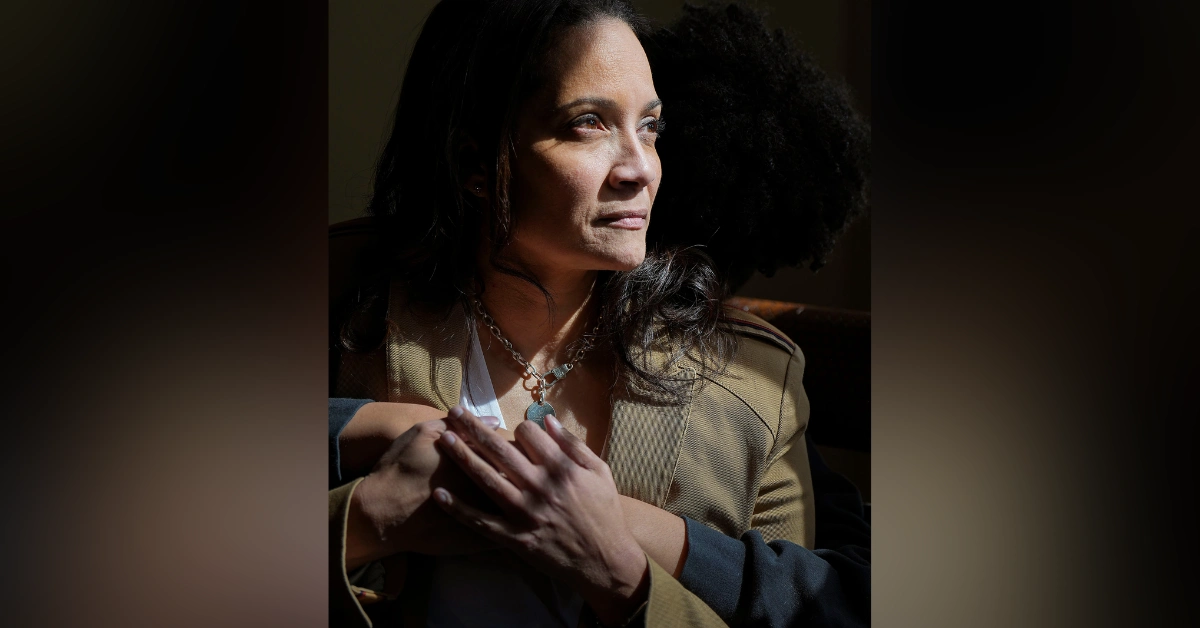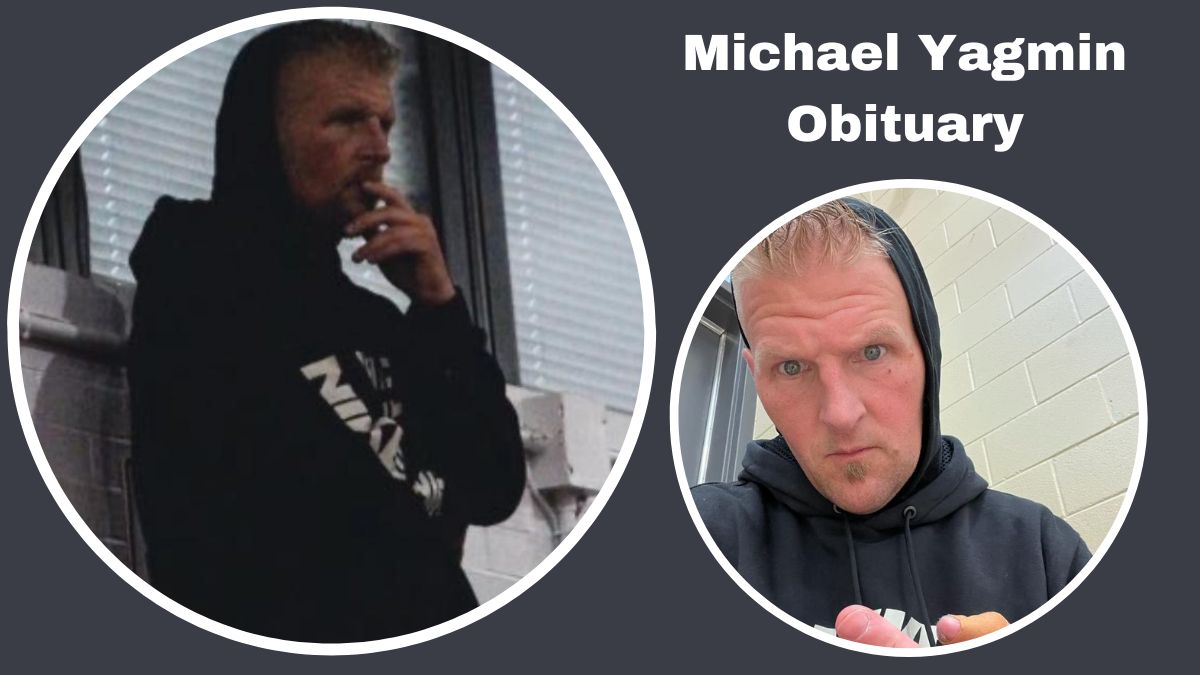Administrators have “considered disciplinary consequences when students have spread rumors rather than following the appropriate steps to notify a trusted adult or using LISD’s anonymous reporting options to report concerning statements they may have heard,” Clark said.
‘See Something, Say Something’
Youngblood withheld her daughter from the alternative school while appealing the administration’s decision. Instead, she did her best work at home.
“One thing I’m not going to do is send my child to the prison pipeline,” Youngblood stated in an interview that he would not send his child to prison. Youngblood, an African-American mother, felt like her family was experiencing long-documented school discipline inequities.
Something felt wrong. She left her group chat friends.
“There’s no part of me that thinks this whole situation is rational,” the 13-year-old girl said in an interview.
She played Splatoon, did online classwork, and cuddled with her Yorkie-mix Bella. Her mother researched education law and mental health help for her youngest daughter at night.
Education advocates point to the Youngbloods’ case as an example of administrators’ harsh punishment in reaction to school violence fears: Here, a barely-teenaged girl tried to report a concerning comment, but her method resulted in a severe penalty.
While investigating what middle schoolers said or did is risky, harsh discipline can have enduring emotional and academic effects.
“Discipline that takes a girl out of her school has been shown to lead to poor outcomes,” remarked Georgetown Law’s Center on Poverty and Inequality’s Project on Gender Justice & Opportunity head Rebecca Epstein. “It distances her from her school and her peers. She no longer has the same strong connections or trust in authority figures.”
Epstein led a “adultification” bias research on Black girls. The survey indicated that adults regard Black girls as less innocent and more adult-like than white girls, especially in elementary and middle school. The findings argues this bias may explain why Black females are more likely to be reprimanded for subjective offences.
Lewisville ISD spokeswoman Amanda Brim said the district “cannot treat a threat to a campus with anything less than the full weight of a police response and code of conduct consequences.”
She advised students to report troubling comments immediately to administrators.
“It is not OK for students — intentionally or not — to cause a disruption to the educational environment of hundreds of their classmates by spreading rumors,” she said in a statement.
‘A Great Impact’
The girl’s mother sat dry-mouthed at the school’s conference table. She was passionate but professional. She avoided being the Angry Black Lady. Her daughter breathed with her. She hadn’t attended school in over a week.
At the Feb. 8 appeals hearing, Lakeview Assistant Principal Sharla Samples explained why she sent the girl to alternative school.
Samples recalled hearing gym class gossip from middle schoolers. The child warned her friends in two group chat messages, and some of them told their parents and phoned the police or school.
Samples said the child had many hours to report her worries using the school’s tip line or STOPit, the district’s anonymous threat reporting app advertised to pupils. Samples said the girl had “huge influence” by messaging others about it.
“Several people were scared about the safety of the school because her messages started spreading. Communication had to be sent out to the whole school community … which in itself worried some parents,” the administrator said, according to a recording of the hearing.
She said the school enhanced police presence the day after the girl’s report because the boy’s family was worried about him.
Samples stated in the hearing that the girl had no malice, a clean disciplinary record, and was “historically an upstanding student.” With her white sweatshirt and platform Converse, Lakeview’s 5’7″ curly girl moved silently.
Youngblood countered: How would the school react if her kid overheard a warning sign that led to a threat? Her 13-year-old daughter was emphasised. She finds comfort in best buddy group chats.
“We are teaching kids: If you see something, you say something,” Youngblood said during the hearing. “Kids are kids. They may not always get it right. But she heard something that was concerning, and within a 21-minute span of mentioning to a friend, I was in the know and I was speaking with Ms. Samples.”
Youngblood’s daughter denied rumor-spreading. She told her buddies not to discuss it outside their group chat to avoid panic. Lakeview Principal Beri Deister questioned her during the appeals hearing. She inquired why she messaged friends in group chats.
She paused six seconds. She explained: “I just wanted to make sure all of my friends knew, and that they were safe.”
“How did it go from ‘Don’t come to school’ to guns?” Deister asked.
The girl replied: “Today, that’s what you think of.”
Zero Tolerance
How can we prevent another school shooting?
K-12 School Shooting Database creator David Riedman records campus violence. He stated warnings can stop a school shooting. Riedman said Lakeview Middle was a chance for school authorities to teach children how to report threats.
“Any report has to be non-punitive,” he said. “What you never want is for someone to keep a concerning behavior to themselves.”
Lawmakers discuss school discipline after school shootings. Cracking down may help uncover risks early. Parkland ignited a nationwide discussion on stricter student discipline. Texas Republicans considered zero-tolerance discipline after Uvalde.
Advocates believe this attitude will lead to more students of colour being disciplined, expelled, or placed in alternative schools.
The incident disciplined more than just the girl. His mother reported the gym class youngster was suspended and sent to alternate school.
Some middle pupils wrote about the incident for Lakeview administrators. The child who made the comment contradicted them.
In one statement, he wrote: “I said don’t come to school tomorrow because I wanted to scare them. … I wanted to because I think that it was funny. I expected them to tell.”
He later denied saying “don’t come to school” at all. He wrote that he felt uneasy answering administrators’ queries without his parents, “so i lied to y’all to just get it over with so i could leave.”
The boy’s mother told The News she wasn’t provided adequate appeal information. She said her son is a target.
‘Deal With It’
Youngblood opened her email after her initial appeal to see Principal Deister decreased the punishment. She recommended 30 days in Texas’ Disciplinary Alternative Education Program.
Youngblood would object. She hired a lawyer and spent hours researching school discipline and racial inequities.
She discovered that 12% of Lewisville’s pupils are Black, yet nearly one-third of alternative school placements were Black last year.
She realised that school officials can punish kids however they choose. Selling marijuana requires incarceration. Sometimes the administration decides.
557 Lewisville children attended alternative schools last year, 245 of whom were placed by administrators.
Struggling for her kid made Youngblood rethink what causes an alternate school assignment.
“I thought, I have a good kid. Kids that are going to DAEP, they must be bad kids,” she said. “How many other kids, who are there, have parents who are just so busy trying to keep the lights on and food on the table, that they just say, ‘Johnny, go, mom can’t take off to deal with this.’”
“I could take off and deal with it.”
Lewisville ISD handed her a truancy warning for not sending her daughter to alternate school. It warned of court action and fines for excessive unexcused absences.
No Win
Youngblood rushed into her daughter’s room when she woke up on Saturday. “We did it,” she told her.
The school district reversed Youngblood’s daughter’s punishment after a second appeal. She might return to Lakeview eighth grade.
“The student did not mean to cause the disruption that resulted,” a Feb. 17 letter from a district committee of non-Lakeview administrators stated.
“Restorative practices and further supportive instruction for the student on ways to report concerns to school officials are appropriate,” it read.
LISD official Clark told The News that “additional information can come to light” during an inquiry. Conversations and inquiry changed “the initial consequences.”
“The district’s process worked as intended.”
Three weeks after being called into the school office, the adolescent was reeling.
“I don’t feel better,” Youngblood’s kid alerted her mom about the committee’s decision.“I don’t feel happy.”
She missed her middle school dance, leaving her sunflower-dotted dress unused. Missed cheer club breakfast. She missed hours of Spanish, painting, and math, her favourite. The youngster who scored 98th on her STAAR test worried about slipping behind.
She distrusted school staff. She avoided them. She felt the school made her feel guilty. A doctor wrote that the administration’s actions impacted the girl’s mental health.
Next year, she wondered. She fought for the district’s early college programme. She hoped to graduate high school with an associate’s degree and possibly work with animals.
Continue read our latest news of the schools:
The girl worried about facing her classmates after the decision. She didn’t want to appear awful. They tried on a recent Thursday.
Youngblood made her daughter grilled cheese the night before school. She then went to her office to write a formal complaint to the school district regarding the principal and assistant principal’s actions. She advised officials: “Who among us could process the label of a liar unworthy of being in class with her peers?”
She imagined entering Lakeview again. She opted to avoid eye contact.
Youngblood and her daughter debated what to tell other kids at the kitchen table. She couldn’t say she was sick all the time.
“I know some people will ask me,” the girl said. “I know some people won’t take ‘no’ for an answer.”
“I almost think it’s OK to say you were unjustly punished for something and, in the end, it was overturned,” her mom suggested. Youngblood believes the school punished her daughter to make Lakeview less safe.
“If I heard something else that could be a threat,” the girl told her mom, “honestly, I just wouldn’t tell anyone.”
The DMN Education Lab covers and discusses crucial education topics that affect North Texas’ future.











